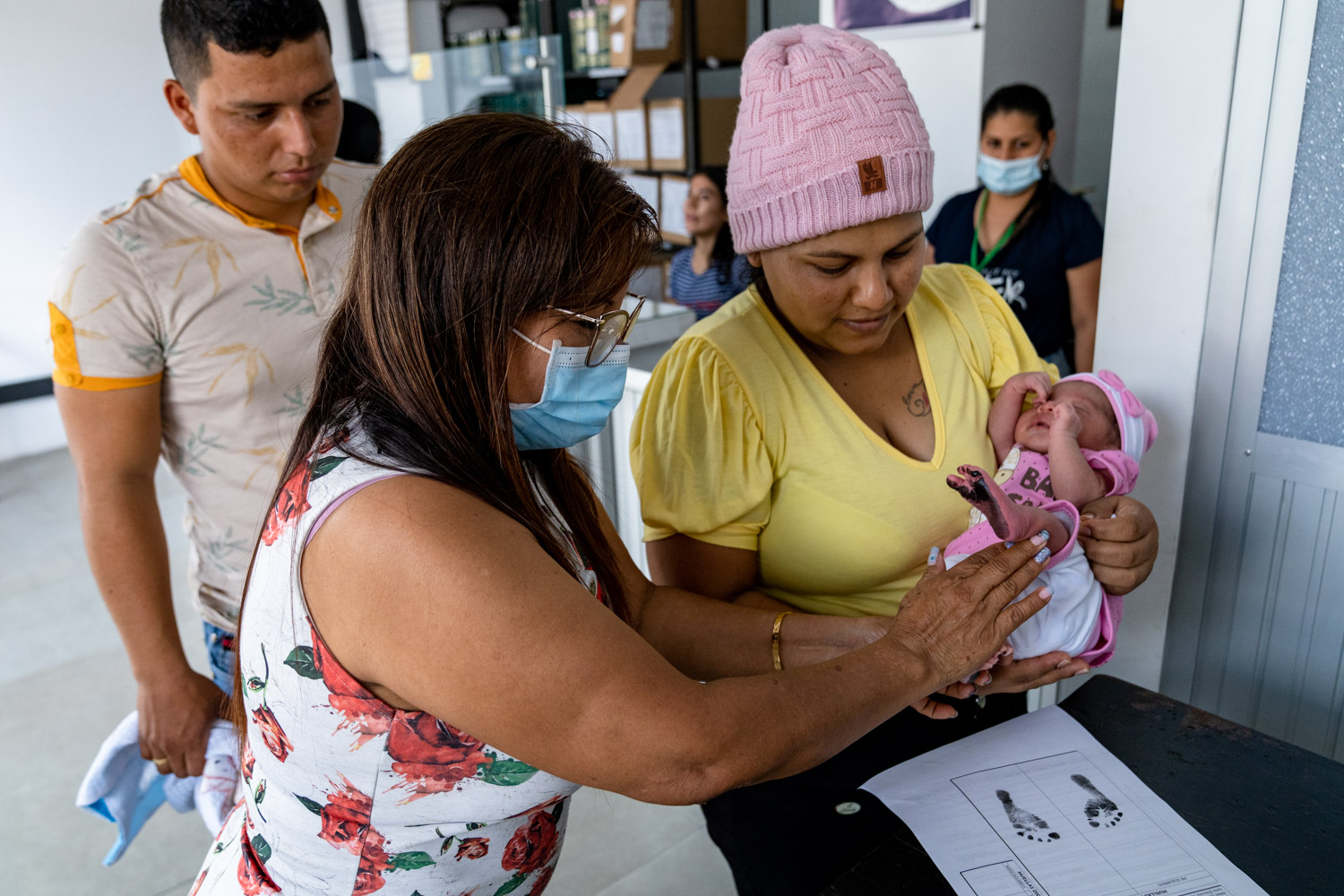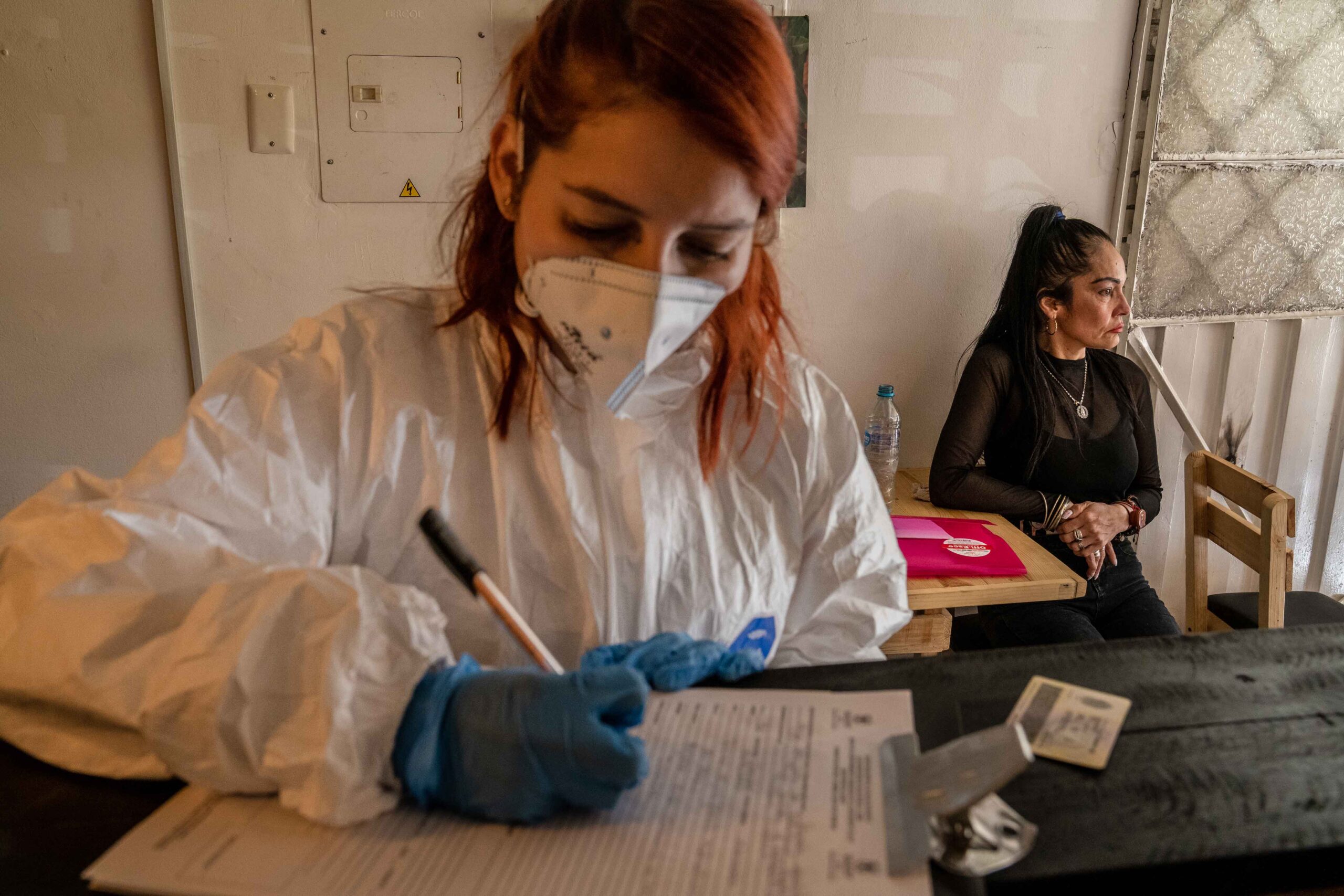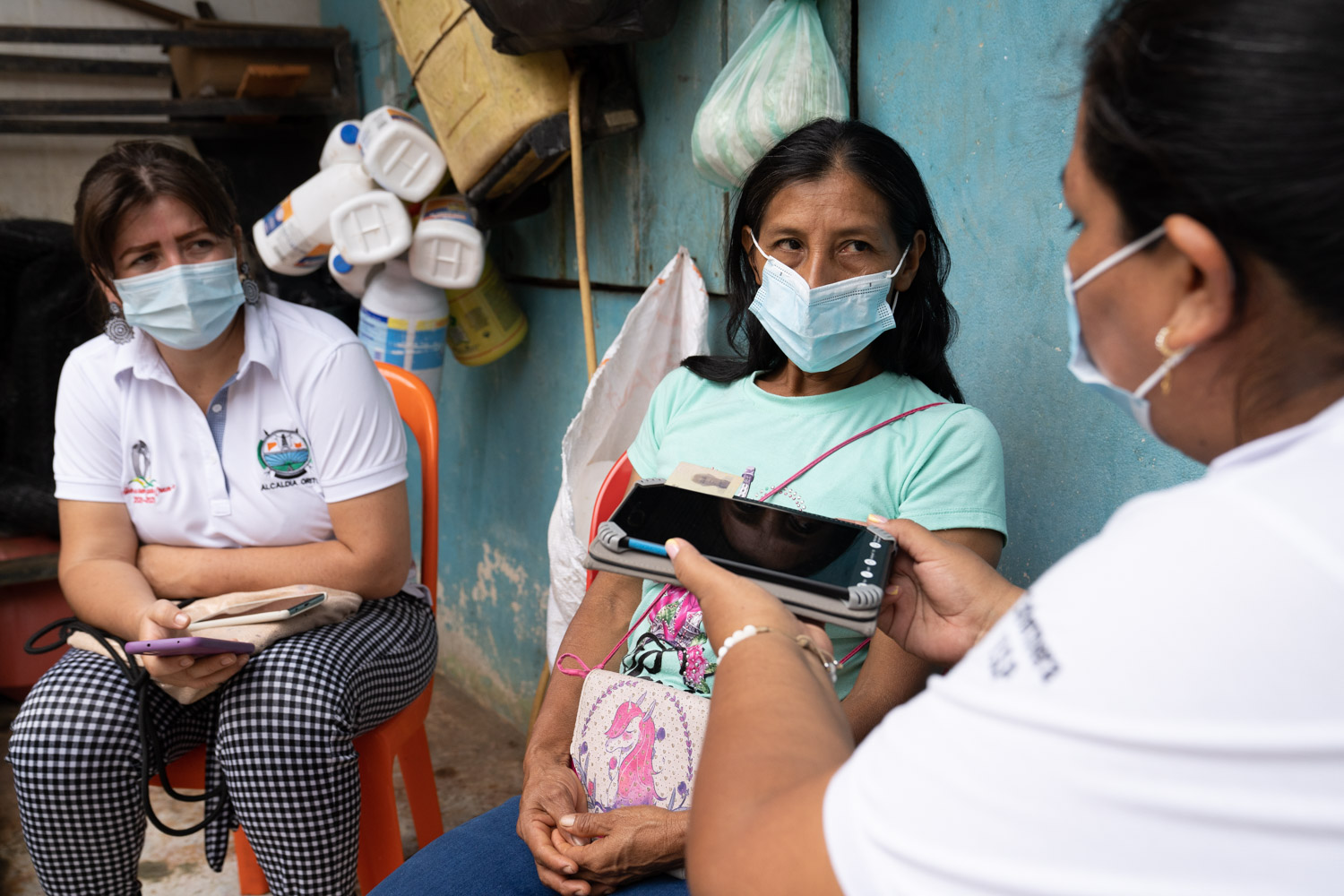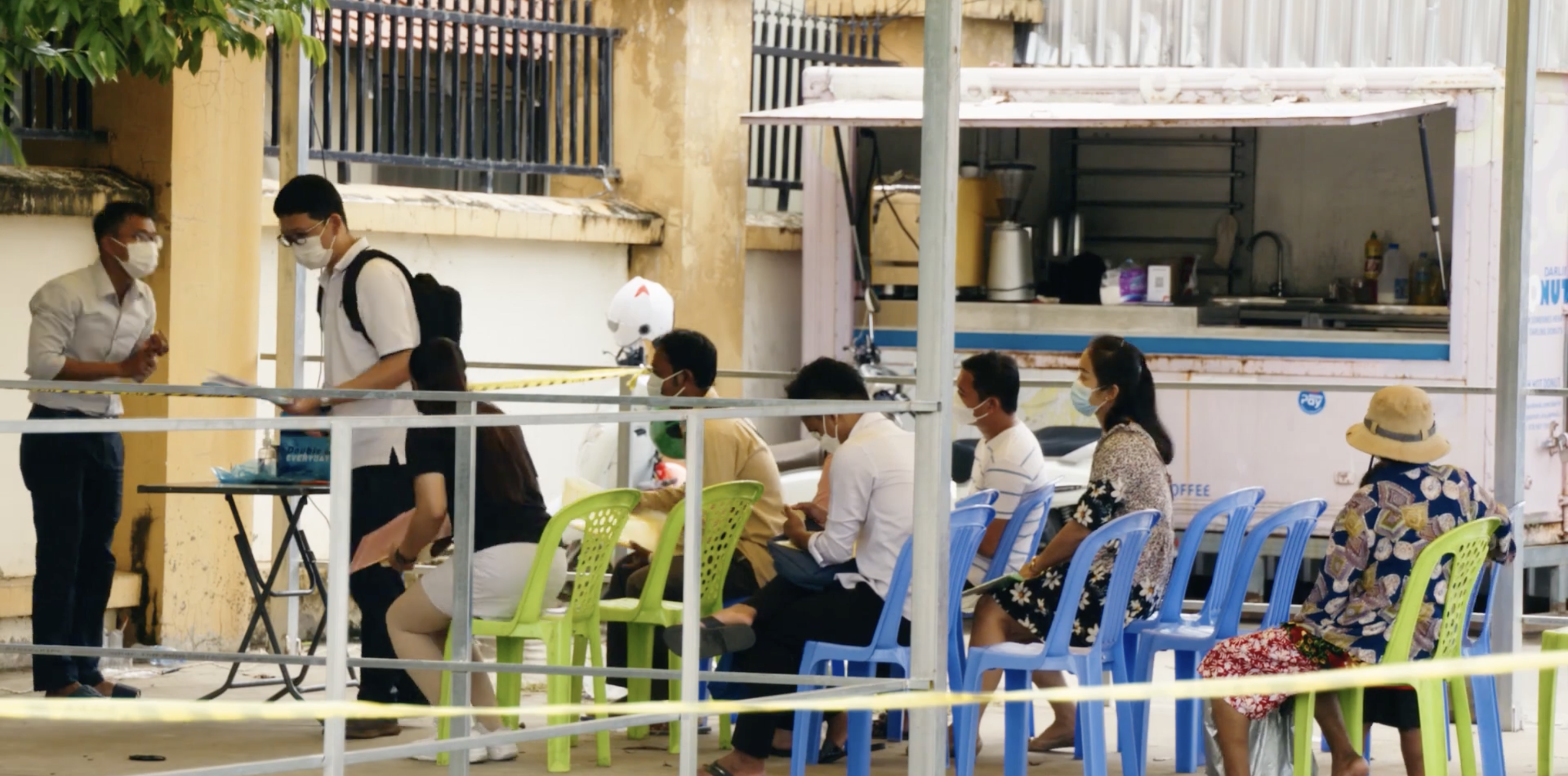
A baby in Colombia is footprinted as part of the birth registration process.
% of 331 divisional secretariat offices in Sri Lanka where quality-assured cause-of-death data is now captured digitally
people living in Cambodia who now have the right to legal identity under new legislation
physicians who have been trained in the medical certification of cause of death in Colombia
On the surface, Colombia’s birth and death registration statistics are high: In 2023, more than 97% of births and 91% of deaths were registered. But most of the people who are left behind are from rural, indigenous and poor communities. Since 2018, the Colombia Rural Vital project, a partnership between Vital Strategies’ Civil Registration and Vital Statistics team and the national government, has been seeking to ensure that all vital events—even those among the people who are hardest to reach—are captured. Birth and death registration is essential to empower people with all of the benefits of legal identity, ranging from health care and education to inheritance rights.

Vital Strategies has provided funding, technical assistance, hardware, software, training and more over the past seven years, under the Bloomberg Philanthropies Data for Health Initiative. Colombia now leads the region in best-practice CRVS systems, including the newest methods for assigning causes of death. It is also among the first countries in the world to include the option of a non-binary gender identity on death certificates. Here, a physician fills out a death certificate at a home in Bogota. Photo credit: Juan Arredondo for The New York Times

Verbal autopsy—determining the probable cause of death by interviewing the deceased’s family and caregivers—is improving data on deaths that happen outside a health facility. A total of 80% of the health professionals who perform verbal autopsy in three of the country’s most underserved departments have been trained. In 2023, they conducted more than 500 verbal autopsies, such as the one shown here, to uncover the leading killers of ethnic minorities living in some of the country’s poorest rural locations. Photo credit: Juan Arredondo for The New York Times

Colombia has also advanced digital interoperability among its CRVS components: Now, agencies for health, civil registration, statistics and medico-legal death investigation can all exchange information. Data can be collected, processed, analyzed and made available to decision-makers in near real time. Here, a staff member at a hospital in Mocoa reviews decades-old files, a kind of manual search that is less common now, making the system more efficient. Photo credit: Juan Arredondo for The New York Times
After seven years of engagement with Vital Strategies’ CRVS team, Colombia has achieved sustained impact under government ownership and leadership. The country has made policy, planning, and financial commitments so that the CRVS improvements are a permanent part of the country’s health data infrastructure.
“Nationally, we have about 85 to 90 percent [birth registration]coverage now… But that last 15 percent makes up the poorest, most disenfranchised segment of the population. You’re talking about five or six million people. And because they aren’t registered, it’s as if they don’t exist.
Earlier civil registration and vital statistics work was fragmented. Now, however, this work is managed by a dedicated institution… I believe that reforming toward a strong civil registration and identification system in Cambodia contributes to strengthening the rule of law, good governance, respect for human rights, and promoting national security and safety.”

Cambodia’s CRVS and Identity Management (CRVS-ID) law guarantees civil registration for all 16.8 million people living in Cambodia. The law resulted from a partnership between the Royal Government of Cambodia, Vital Strategies and the Global Health Advocacy Incubator. Every vital event will now be registered, regardless of the person’s nationality, citizenship, ethnicity, location or gender. This means everyone residing in the country can prove their legal identity, guaranteeing key human rights. Read more.

In March 2023, an online real-time mortality registration dashboard for the country of Sri Lanka was launched across the island with plans to add cause-of-death data in the near future. Under the Data for Health Initiative and with support from Vital’s CRVS team, the Registrar General’s Department successfully completed software development and achieved island-wide implementation, including national-level mortality data visualization to enable data-driven policymaking. At left, a quality check visualization in the system.
Join our email list and be the first to know about our public health news, publications and interviews with experts.